Your cart is currently empty!
Part 3: MATRIX Philosophy and Cinematography
Let’s dive deeper into the rabbit hole with MATRIX:

MATRIX

MATRIX Philosophy and Cinematography:
How do you know what is real?
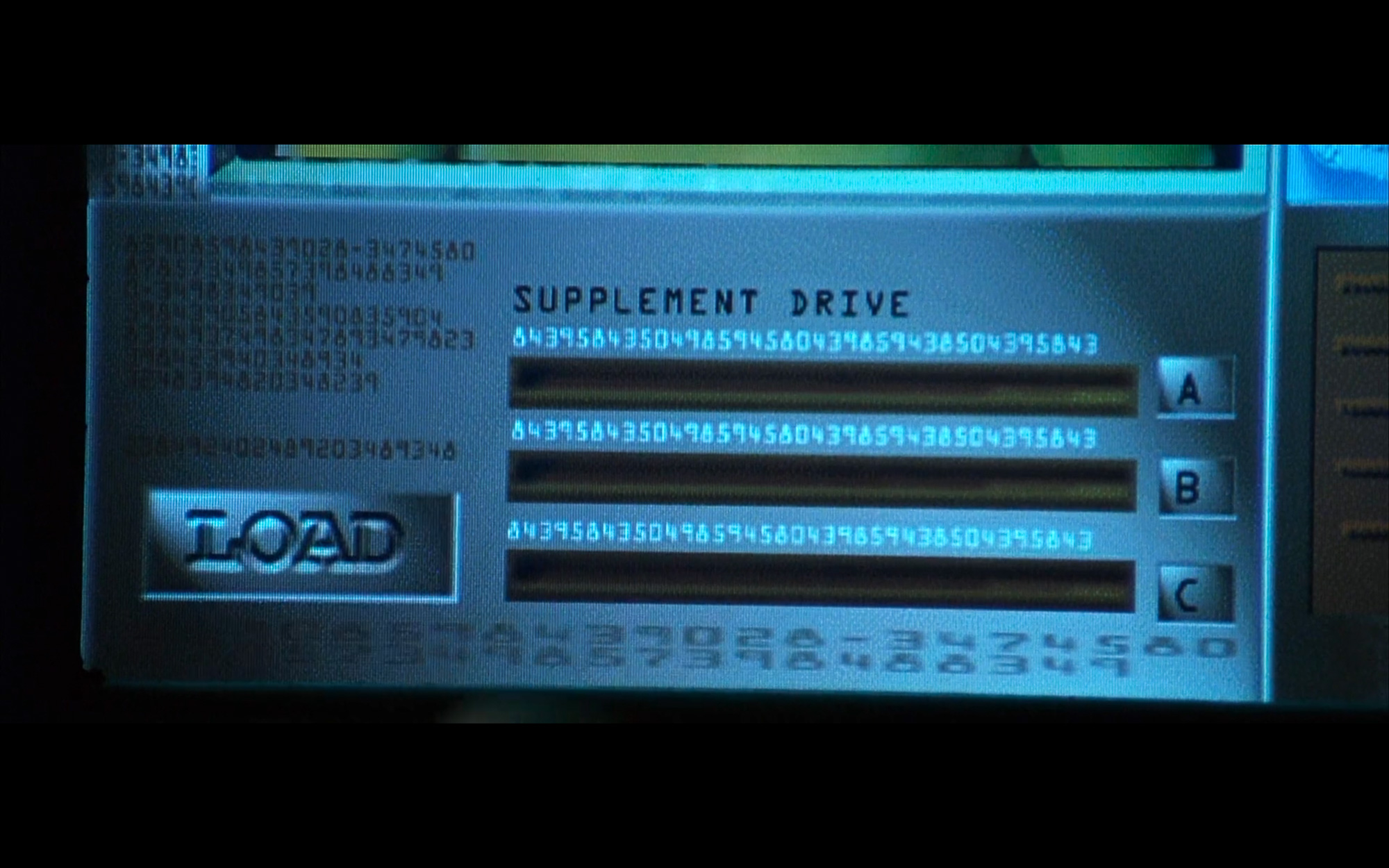
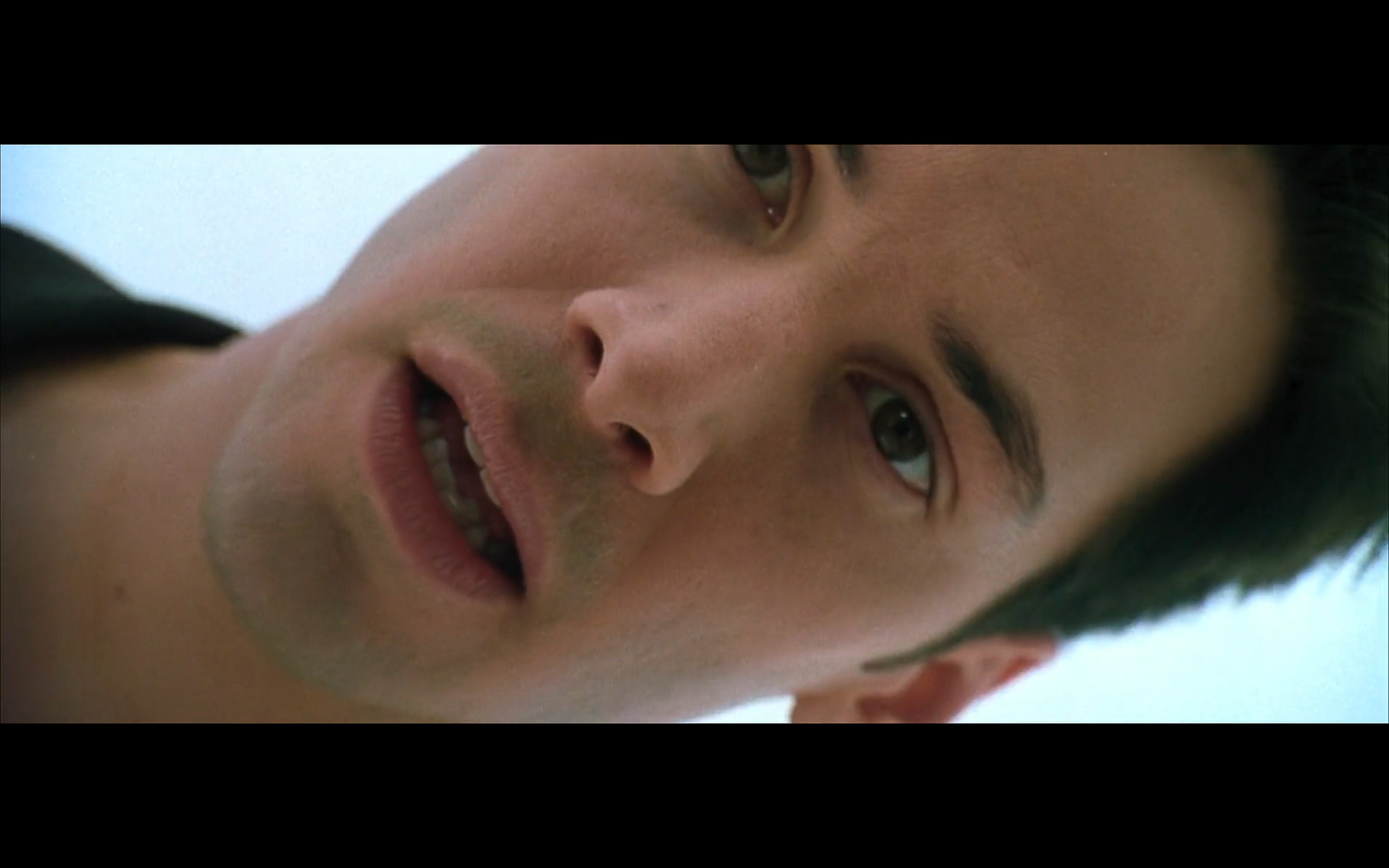
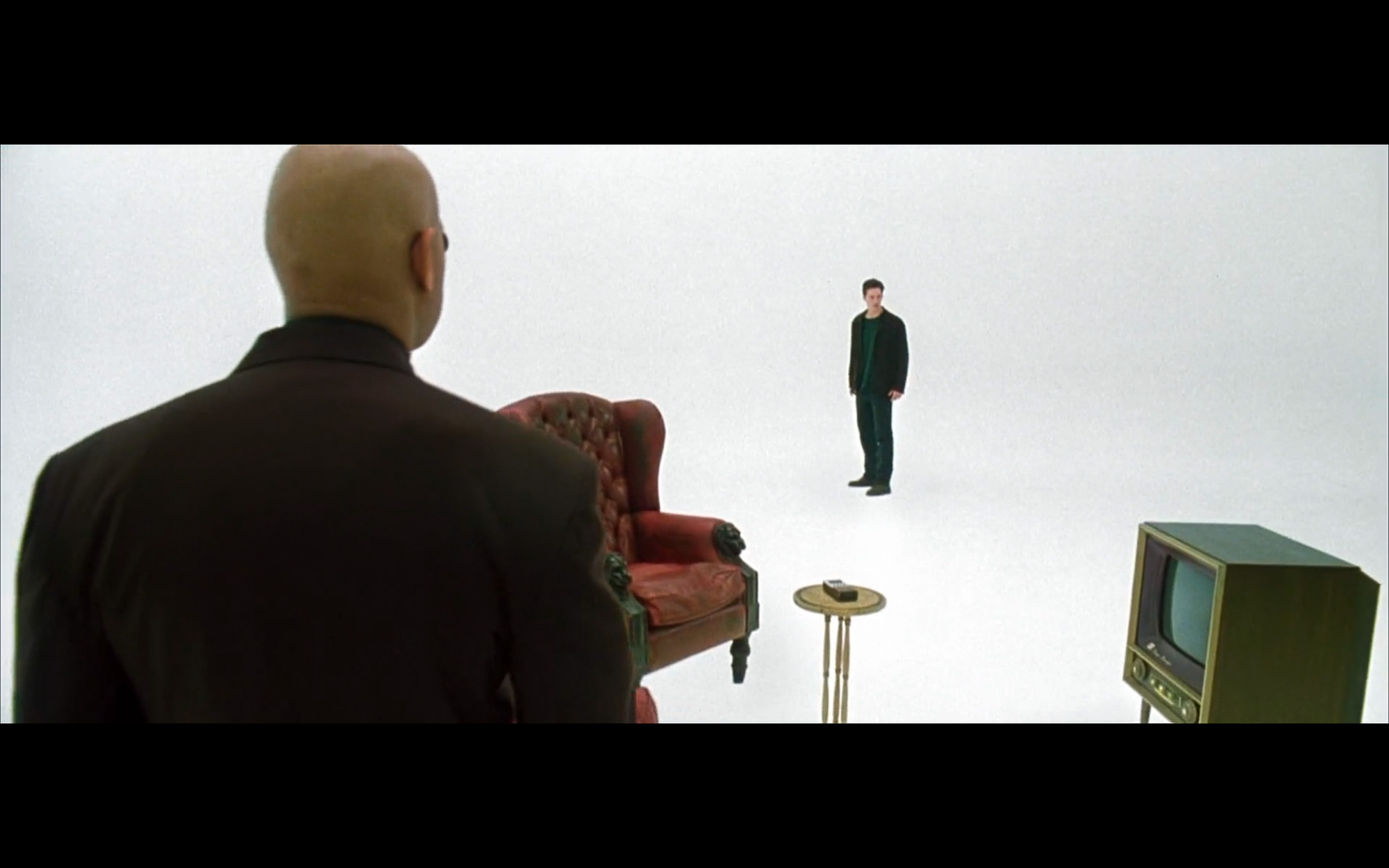
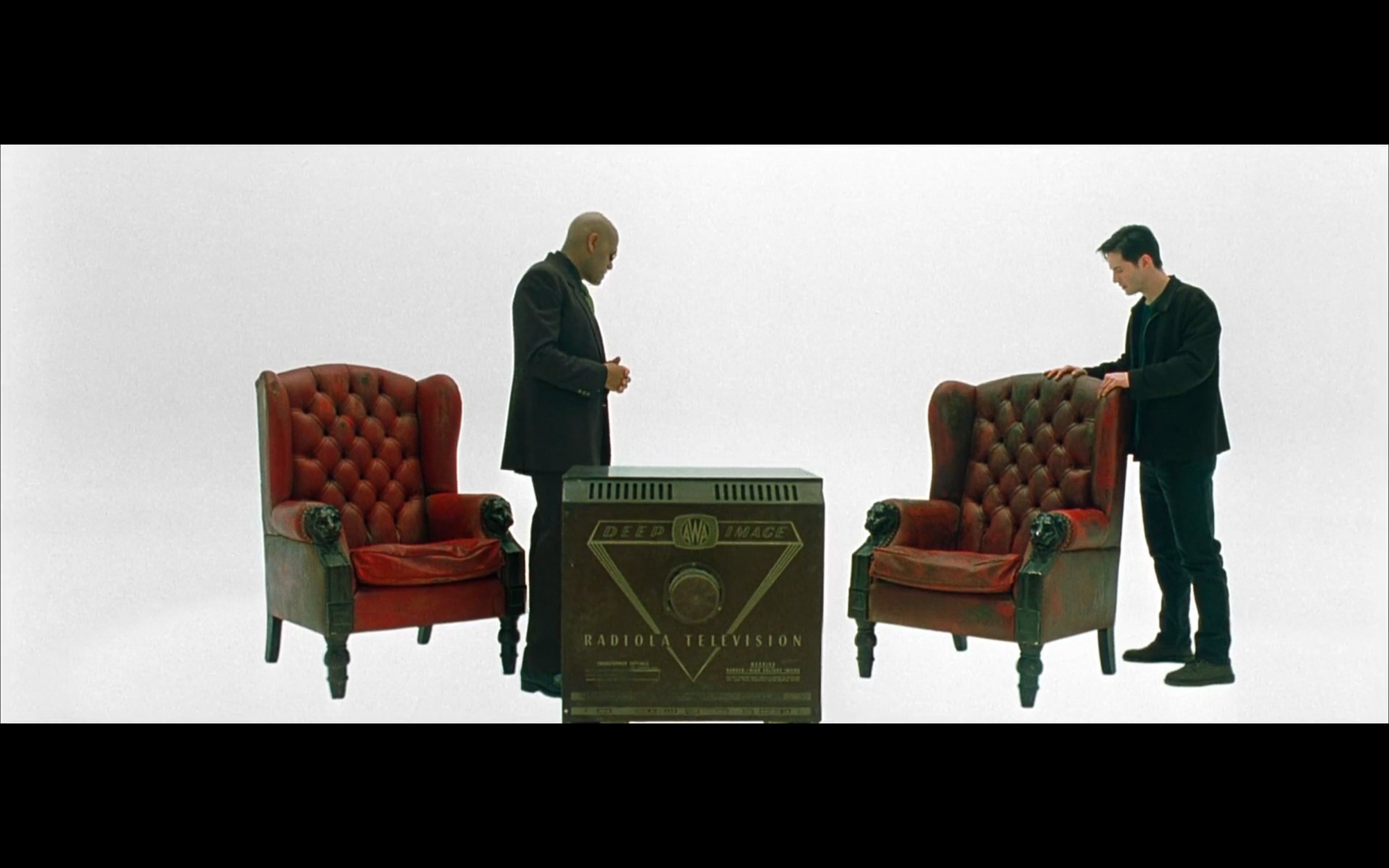




When Neo wakes up in the Matrix and chats with Morpheus, Neo contests and says, “This can’t be real!”
Morpheus then says,
“What is real? How do you define what is real? Real is just electrical signals interpreted by your brain…if we don’t perceive something… is it not real? Does it not exist?”
Food for thought.
Most of us never define the concept of “real”. To myself, something which is “real” is something which exists in the physical world. For example, my coffee cup is real, because it exists in the real world.
But at the same time, videos, pictures, and text which exist on the internet are “real”, yet not tangible.
I think a more important question is:
“Is this significant or not?”
Because if we think about it philosophically, there is a lot which is “real” which we cannot perceive. For example, humans cannot perceive infrared light with our eyes, yet– it still exists! But if we cannot perceive something– is it not real? I don’t think so.
Anyways, Neo realizes this truth via Morpheus:
‘You’ve been living in a dream world’.
The significance of this concept is this:
Many of us are living our day-to-day lives also in a ‘real life’ dream world. We are dreaming about the new fancy car, the next fancy home, the next raise at our jobs, and we are suckered by advertisements, false concepts of happiness, etc. Thus, we are effectively in a dream world as well.
The solution: Realize we are stuck in a false dream world (false world of consumerism), and wake up!
Why was the matrix created?
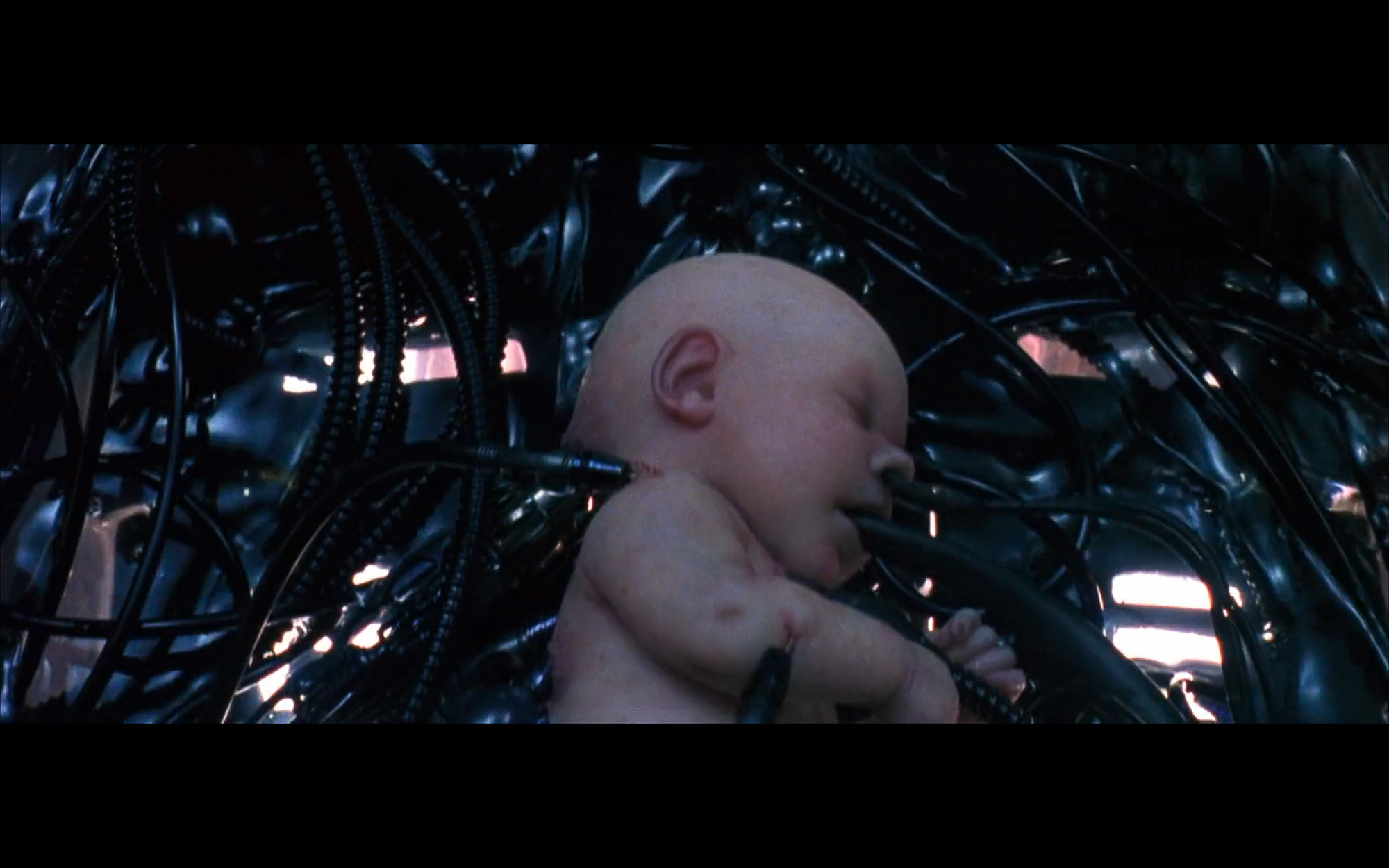
Question: Why was the Matrix built? Morpheus tells us that it was “built to keep us under control”, and to “turn a human into a battery”.
Neo revolts, and is overwhelmed.

Morpheus then says,
“It isn’t easy. But it is the truth. The mind has trouble letting go. Once you find the truth, you can’t go back. But if you could go back, would you want to?”
Ideas for us to process:
- In real life, what was built to keep us under control? Well, in my opinion, I believe that modern institutions/companies/government have the unintended side-consequence of keeping us all as generic worker-bees. But the optimistic thing is this: we can re-train ourselves to NOT be kept under control.
- The mind has trouble letting go: This is true. If you’ve created your own world-narrative for your entire life, and then you realize that it was a false reality– imagine the insane stress that your brain would go through to try to make sense of what is going on.
- Question: If you could go back (and become ignorant), would you? For myself, no. I would prefer to suffer under reality, than be a happy ignoramus.
You can change whatever you desire in the Matrix

The optimistic thing: inside the matrix, you can change whatever you desire– whatever you see fit!
I think the Matrix is just a metaphor for the real world. To be honest, most of us are living in some sort of “Matrix”; whether we are plugged into online video games, whether we are plugged into our jobs and email, or whether we’re addicted to some sort of online/internet/media culture.
This is the fun thing: You can warp/change/mold your own reality however you see fit!
But Morpheus says the ultimate goal:
“The human races needs to be free.”
Human batteries?
Philosophical question: are humans more than mere batteries?

I think so.
I believe the first problem is that humans always use analogies to describe humans/humanity/human nature/how humans biologically function.
We see this a lot in history, especially with the rise of technology.
During the time of steam engines and railroads, a lot of psychologists built up these theories that humans had to ‘let steam out’ when they got angry (using the analogy, that steam engines work on pressure). Consider the saying,
“Don’t crack under pressure.”
But humans aren’t steam machines, nor do our brains function like steam machines.
Or in modern times, we use the internet/computers as analogies to describe our humanity. For example:
- “I’d love to help you, but unfortunately my bandwidth is maxed out.”
- “Don’t ‘multitask’” (what computers are good at)
- “I’m so tired and out of power.”
I believe the human being in terms of our biology is infinitely more complex than we realize. Even my friend Natalie Ma (studied Ph.D. in Biology at YALE) says that there is still so much uncharted territory in biology, and we humans still have so much left to learn.
Anyways, the practical takeaway is this:
Let us stop using ‘batteries’ and other technological-analogies to describe our humanity.
Tank teaches jiu jitsu to Neo
Morpheus then tells Neo, “We need training”. Neo needs to train himself and become stronger (just like we need to train ourselves).
This next scene I quite like: Neo meets the ‘operator’ (Tank) for the first time, and Tank is super excited and pumped, because he heard that Neo is the “one” (NEO spelt backwards). Neo is apparently the messiah-savior figure that Morpheus prophesies that will save humanity (note the obvious Jesus analogy here).
Anyways, Tank straps Neo into the console, and then “downloads” the Jiu-Jitsu program and other fighting programs into his brain. Note the funny-looking Floppy Disks (I remember having things like this as a kid):





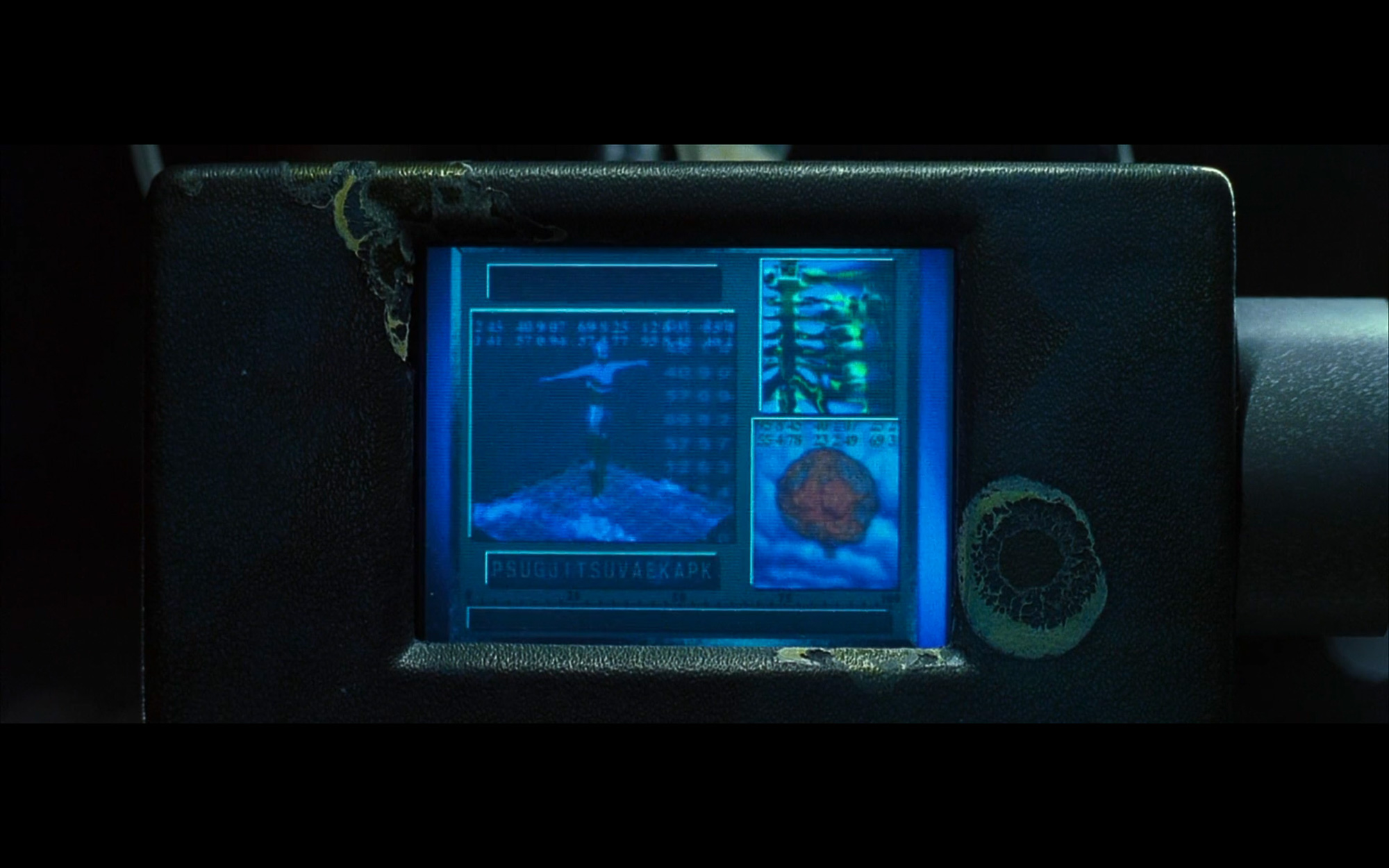

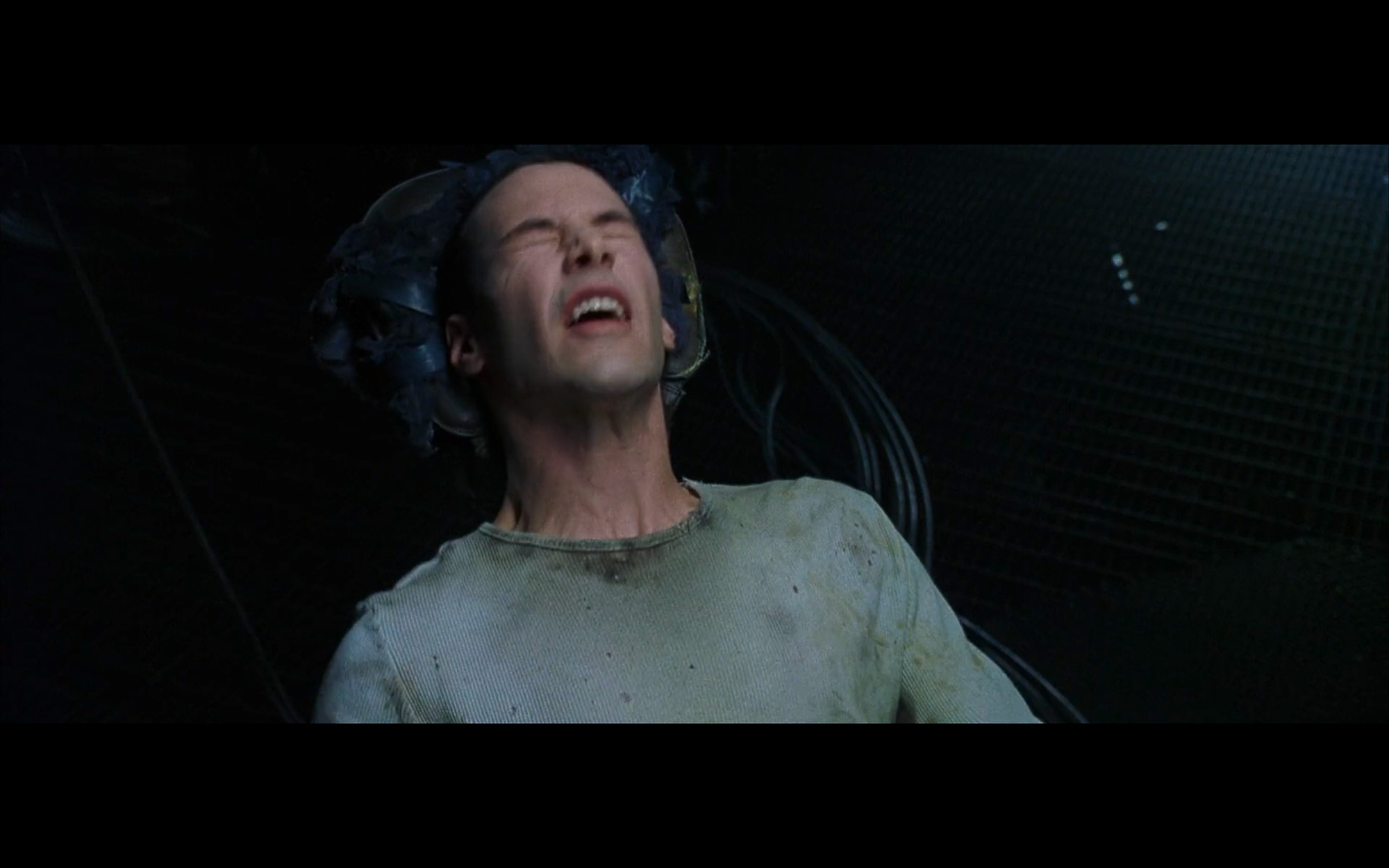
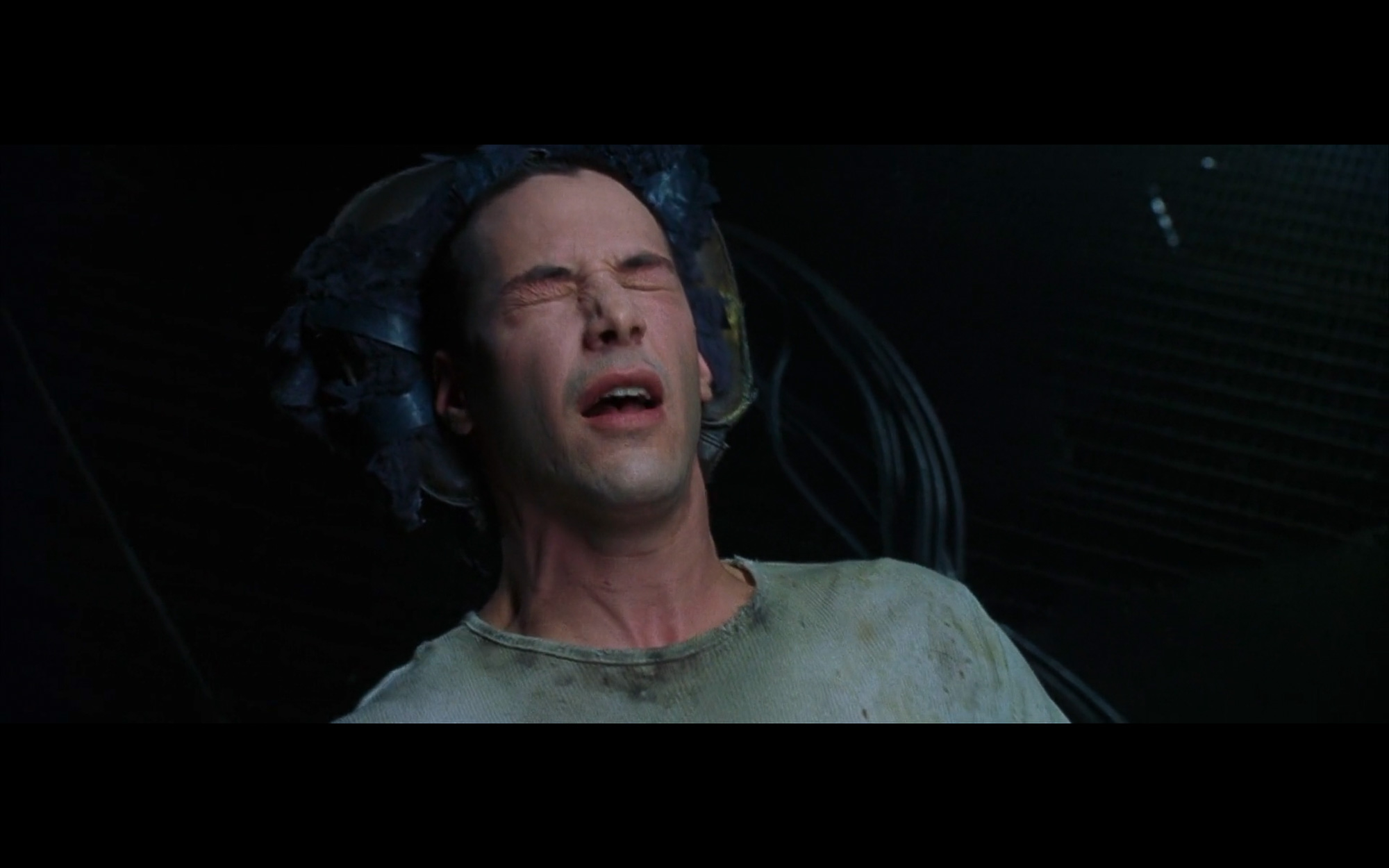

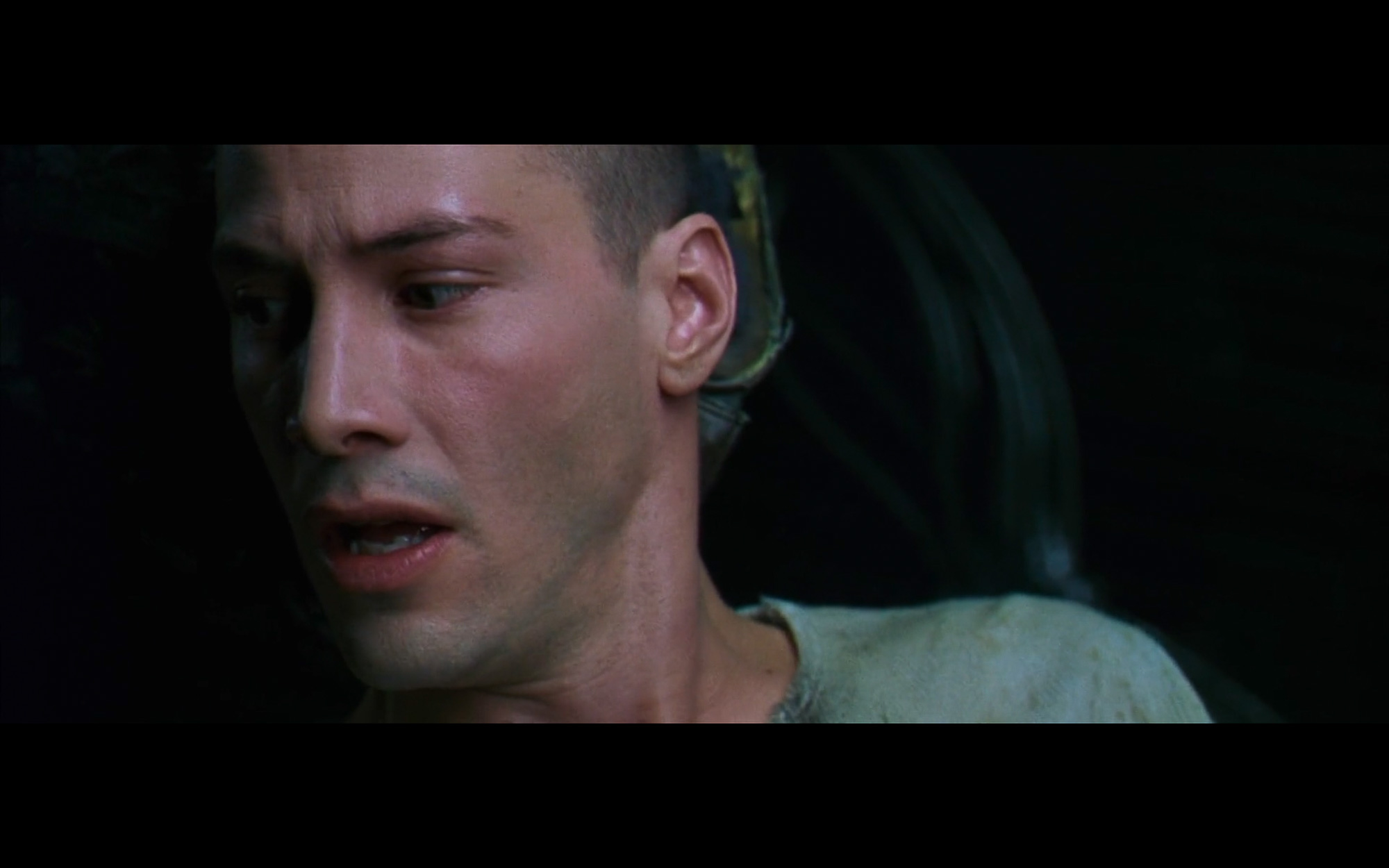





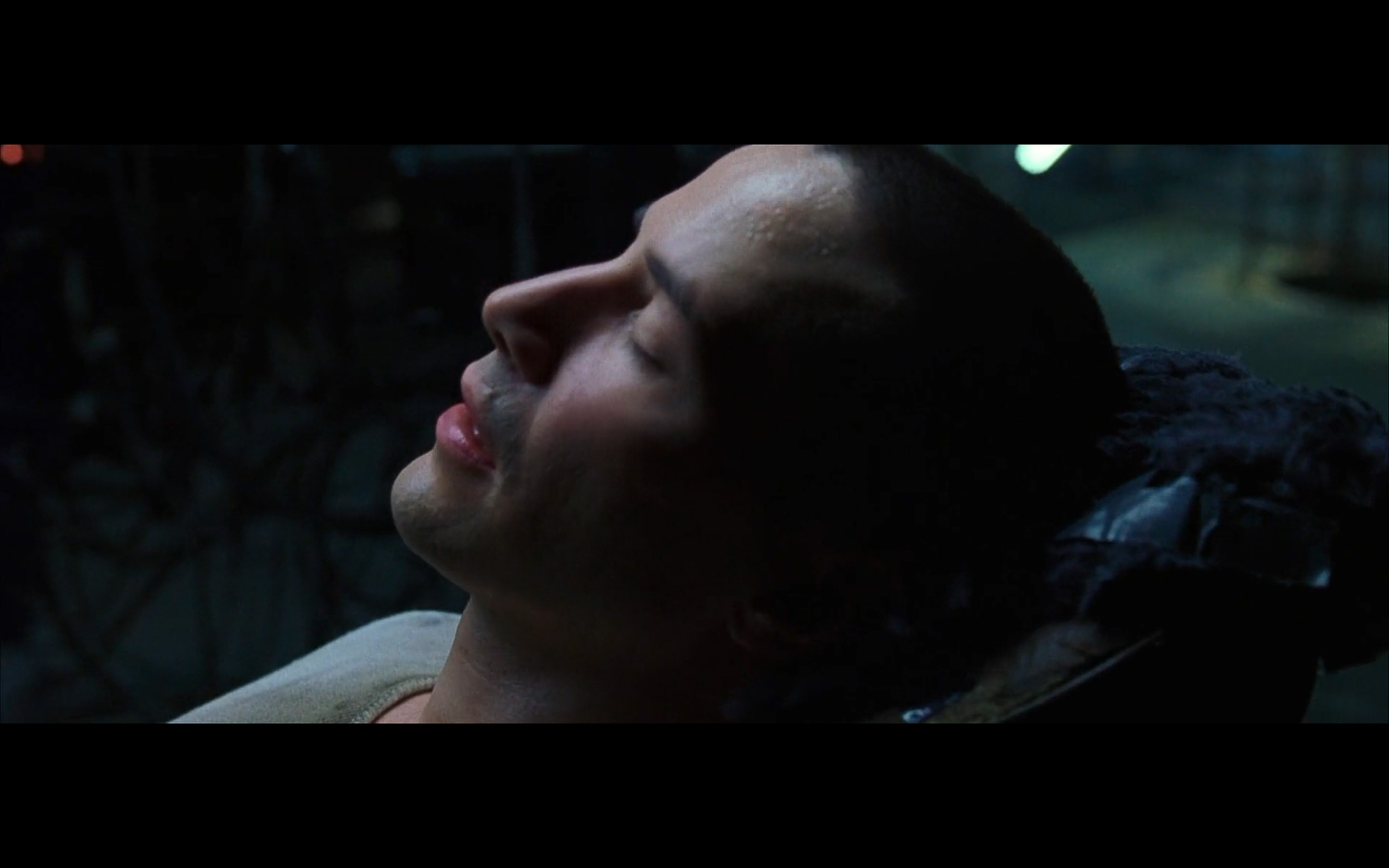



Another thing which is interesting, if you study the UI (user interface) of the computer program, note how insanely dated it looks. In the time of the film MATRIX, it is supposed to be year 2100 or something. Why do computers still look like they’re from the 1980’s?

Lesson: Film-makers should be more ambitious when predicting future computer-interfaces and AI, just like how they hired Jaron Lanier when designing ‘Minority Report’, with the 3D interfaces.
“Whoa, I know Kung-Fu” – Neo
The human brain doesn’t work like a computer program. We cannot just “download” or “install” knowledge into our brains. Yet at the same time, I do like the idea that with enough intensity, dedicated focus, and effort– we can teach ourselves anything. This is a very optimistic philosophy:



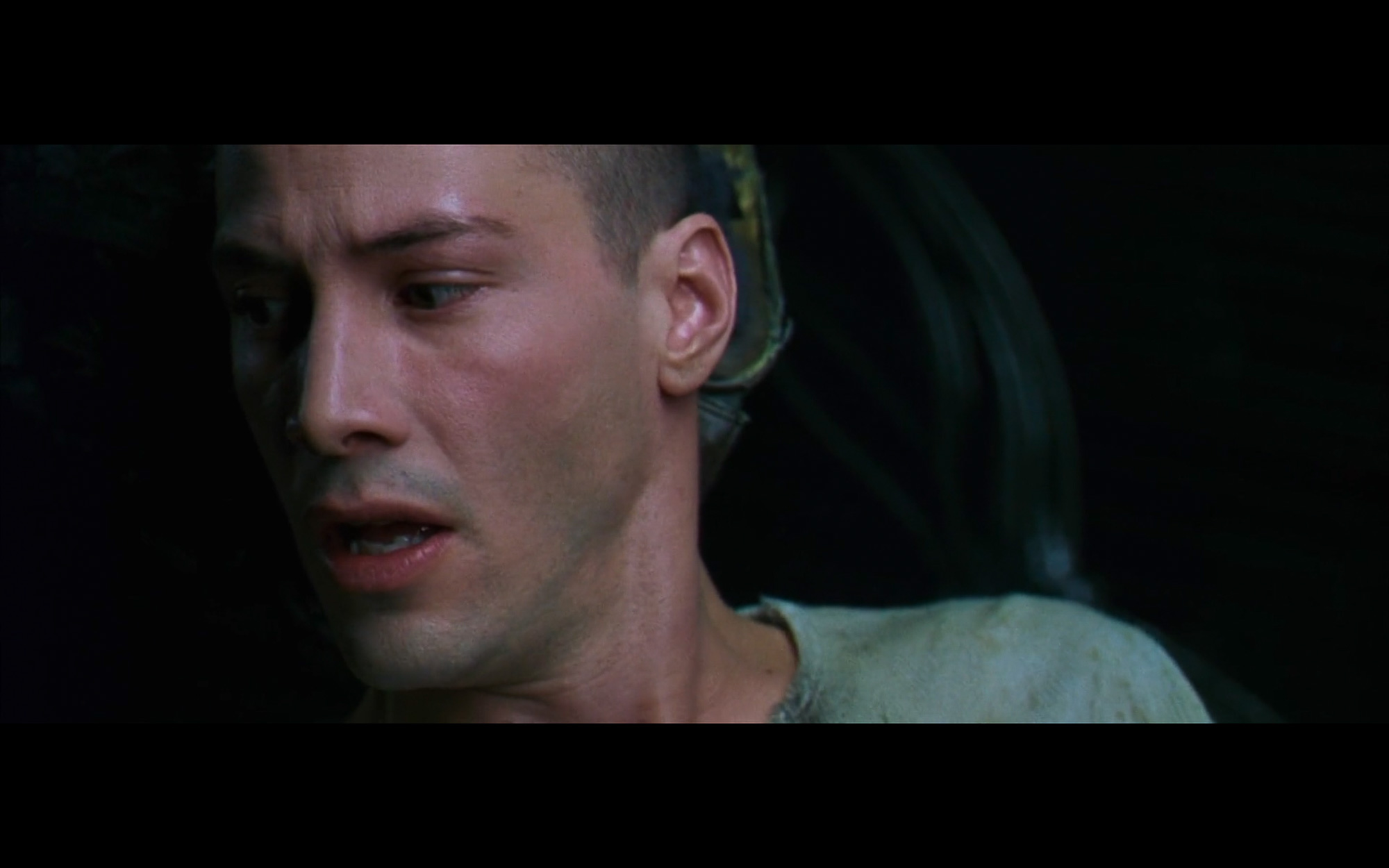

Tank then asks Neo, “Do you want more?” Neo then says, “HELL YEAH!”
Morpheus checks up on Neo and asks him, how is he doing?
Tank then says,
“10 hours straight, he’s a machine!”
Which makes me wonder: if we trained ourselves with intense and dedicated focus for 10 hours straight, what could we achieve?
First fight against morpheus
Then one of my favorite scenes: the first fight against Morpheus.
Morpheus tells Neo that in this training program, it isn’t real.
Which makes you wonder: If you were inside the Matrix, and you knew that the rules of gravity were false; what rules could you break?
Which brings you into a deeper philosophy about real life:
- What rules of reality can be broken, besides physical laws which govern the world like gravity?
This takes us back to ‘first principles’ thinking from Aristotle. Almost anything is possible for us to do/achieve/create in reality!
Then the second question:
- What social rules can be broken in modern society?
Anyways, Morpheus then tells Neo:
- “What are you waiting for? You’re faster than this. You’re stronger than this!”
- “Don’t think you are; know you are!”
- “Stop trying; just do it”
- “I’m trying to free your mind Neo”.
Then we should also consider for ourselves:
- What are we waiting for in our lives, if we wish to attempt do do great/epic shit. We’re smarter, stronger, and faster and more innovative than we think we are!
- There is a difference between giving yourself ‘positive psychology’ to just trick yourself into believing something– versus knowing that you already are that state.
- Don’t force yourself to try with “effort”; rather, let go, and let the work effortlessly do it self (Taoism concept of ‘wu-wei’)
- Free your own mind: Don’t doubt yourself: you can do anything.
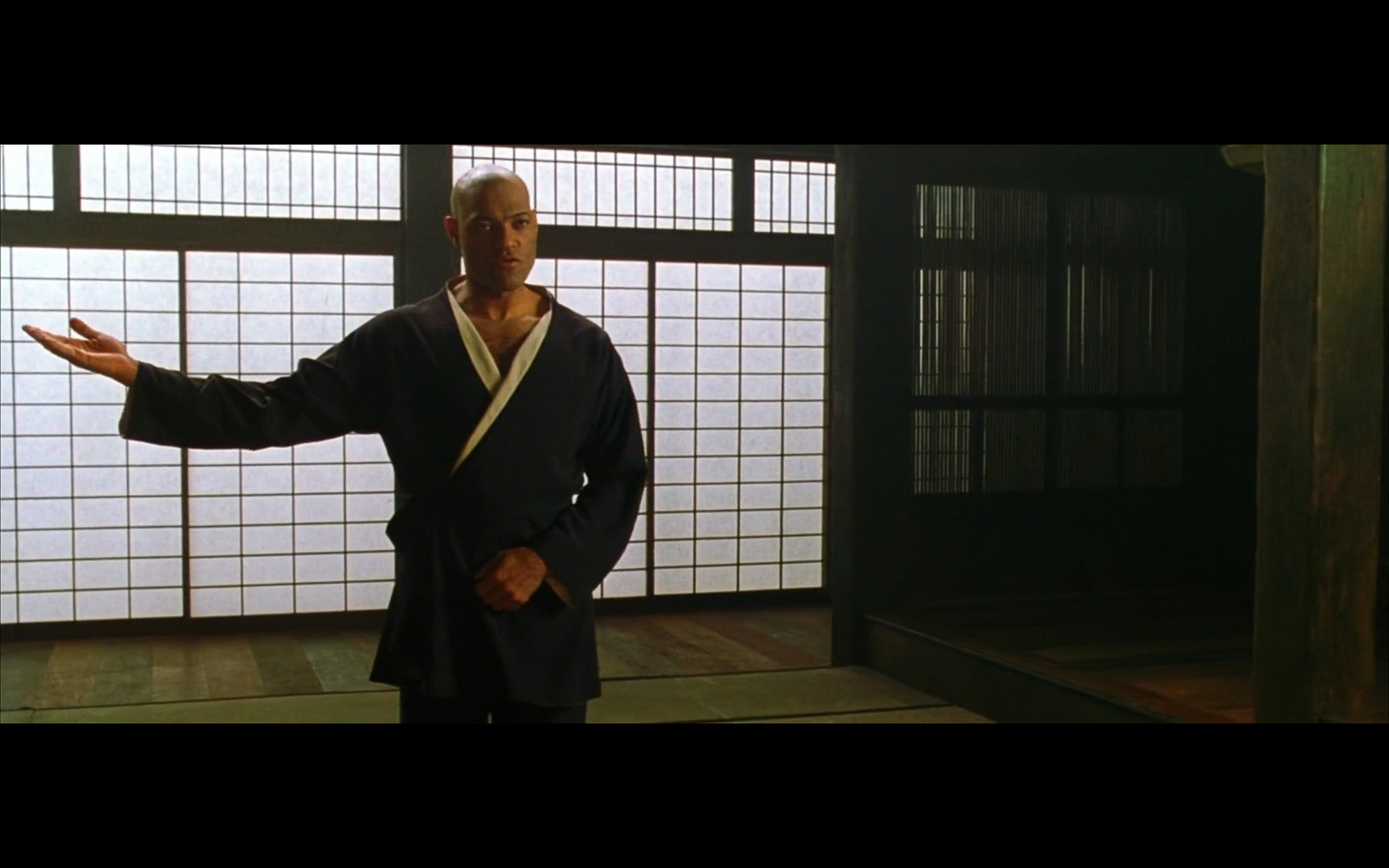











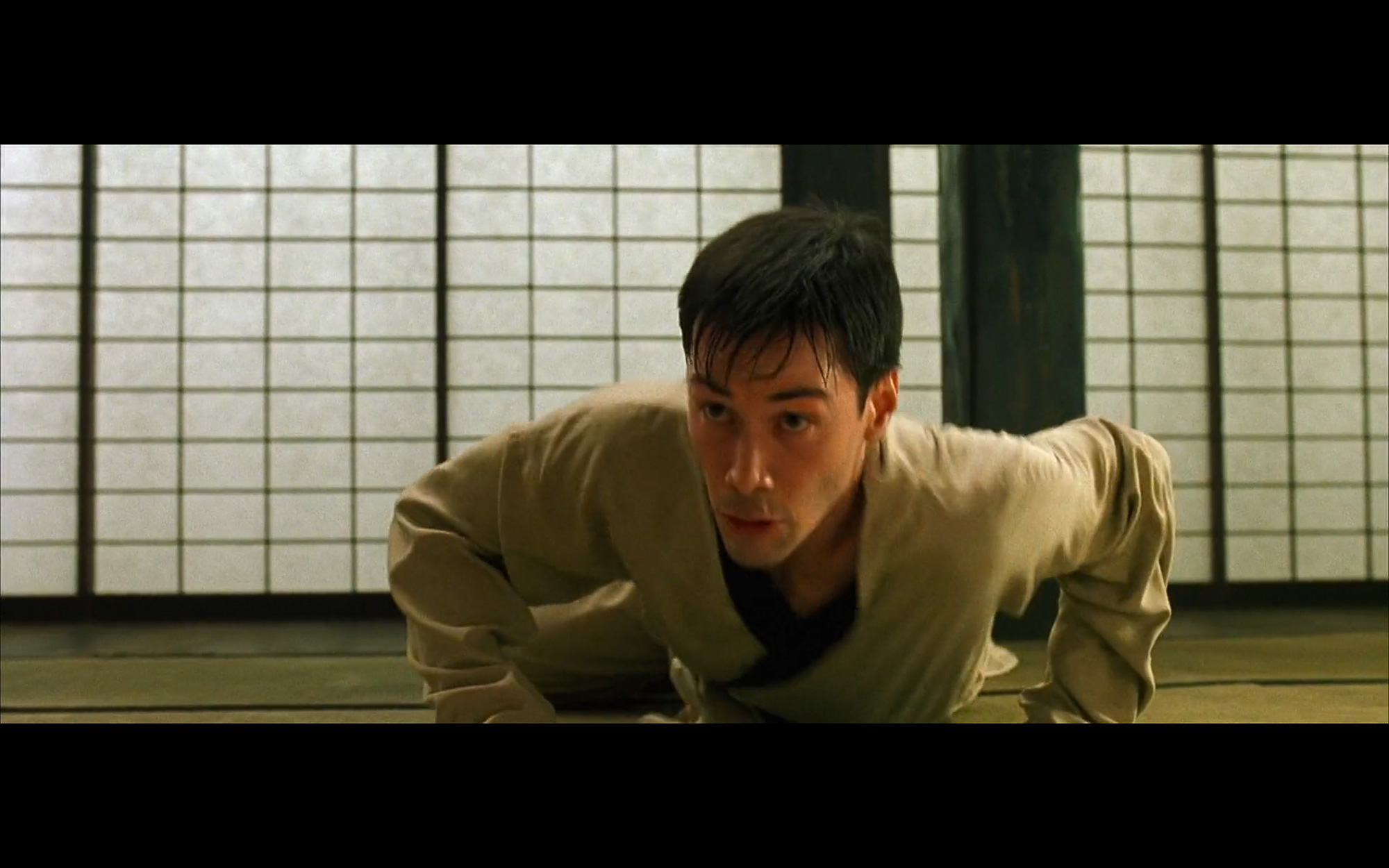




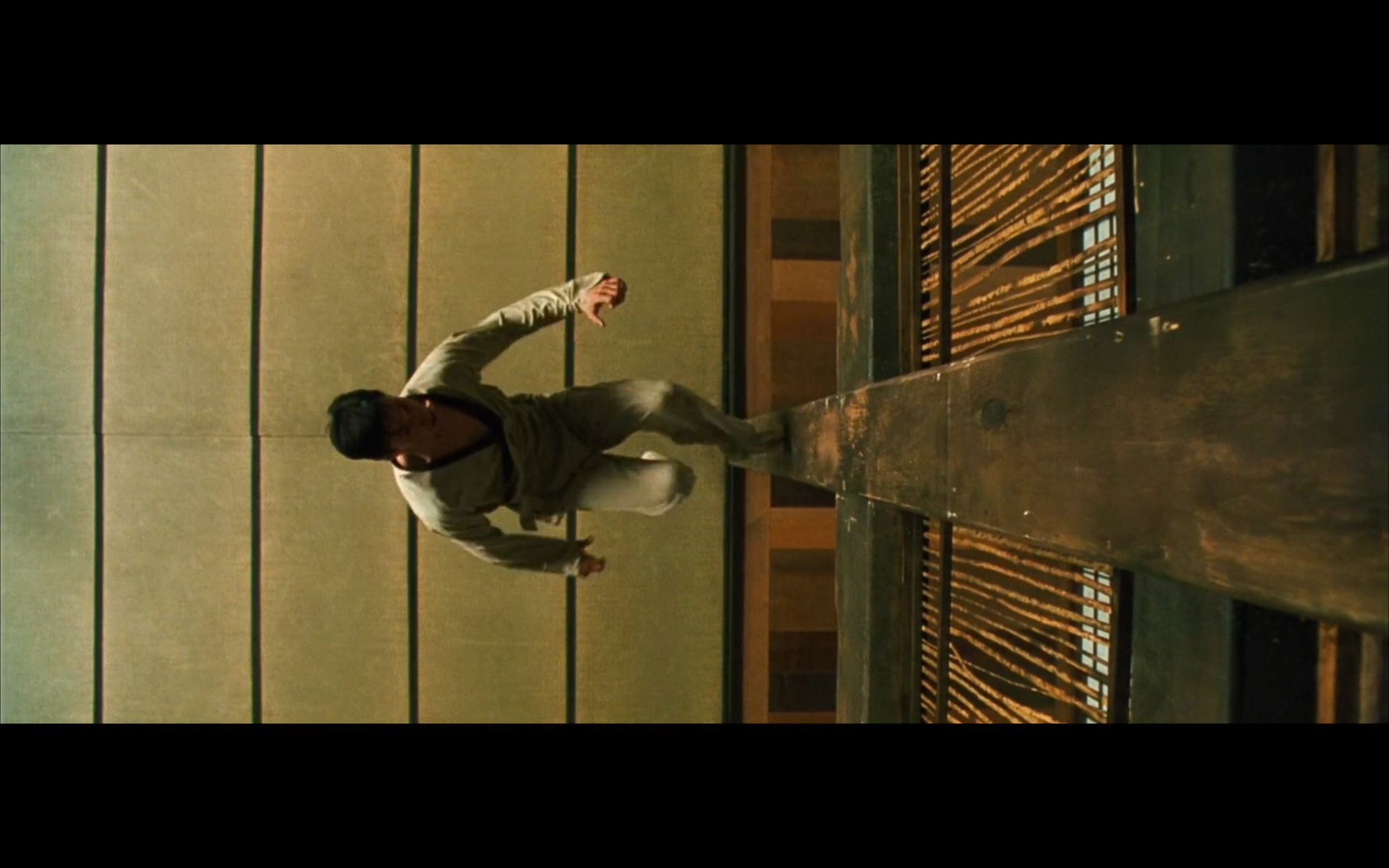





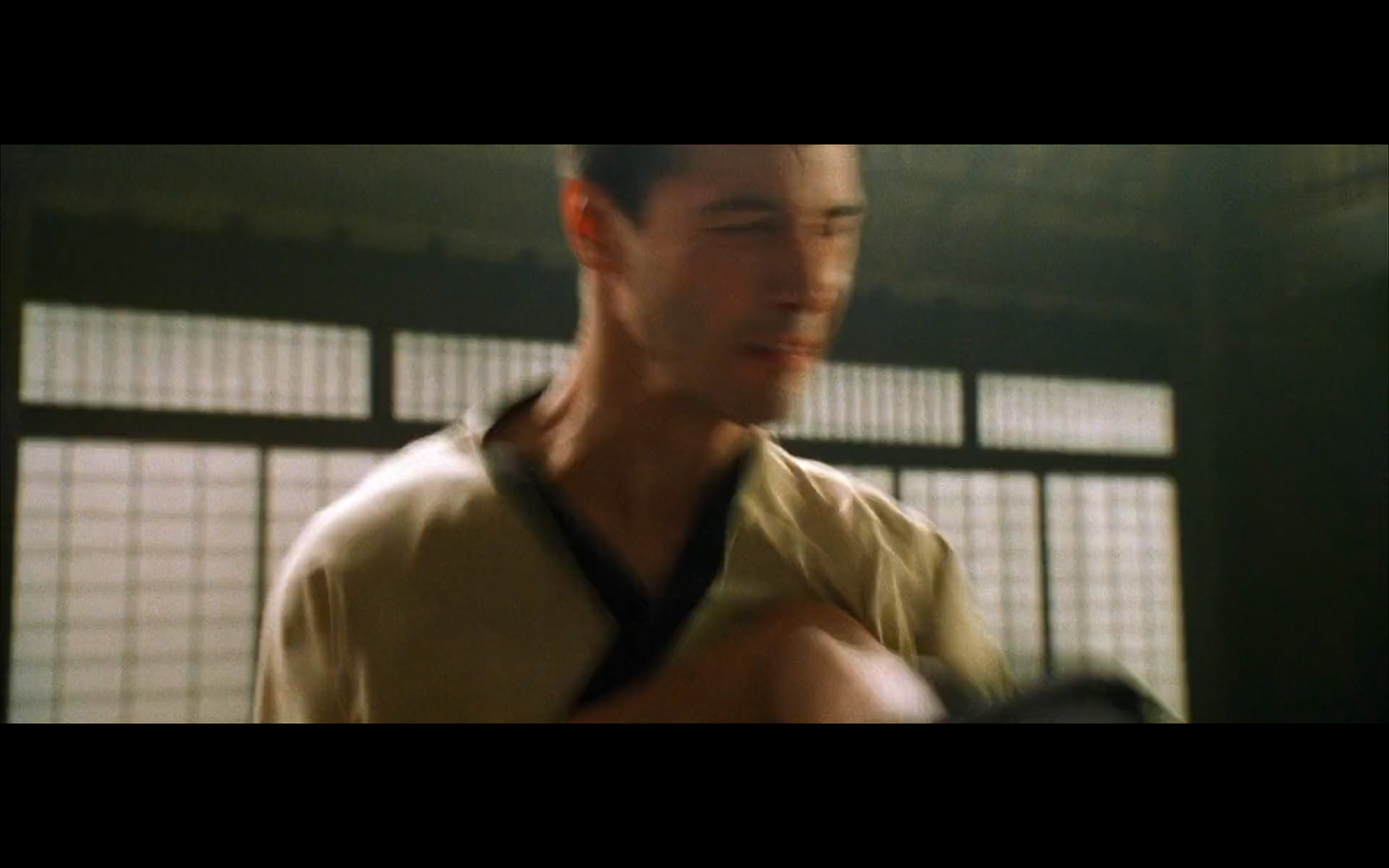


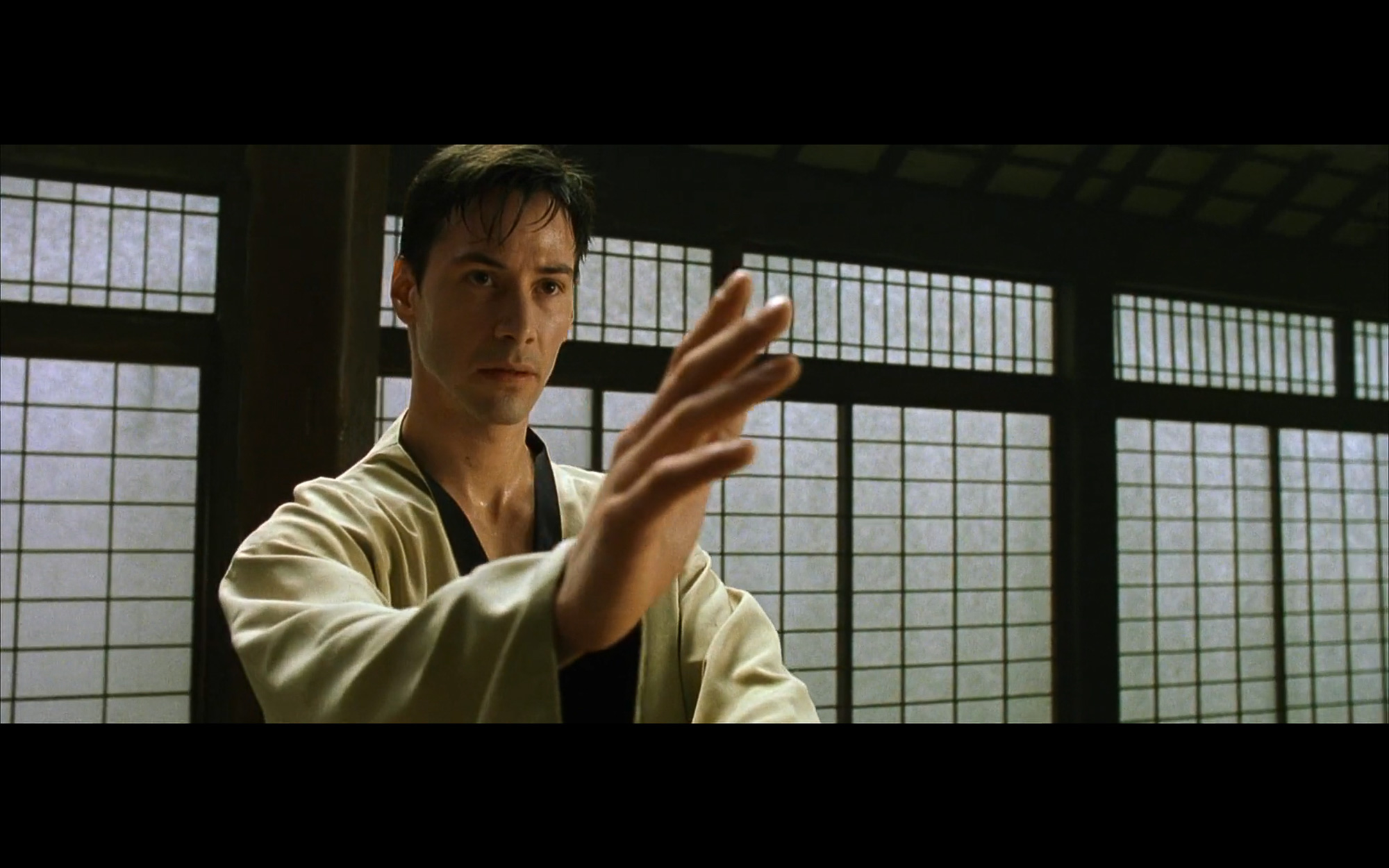

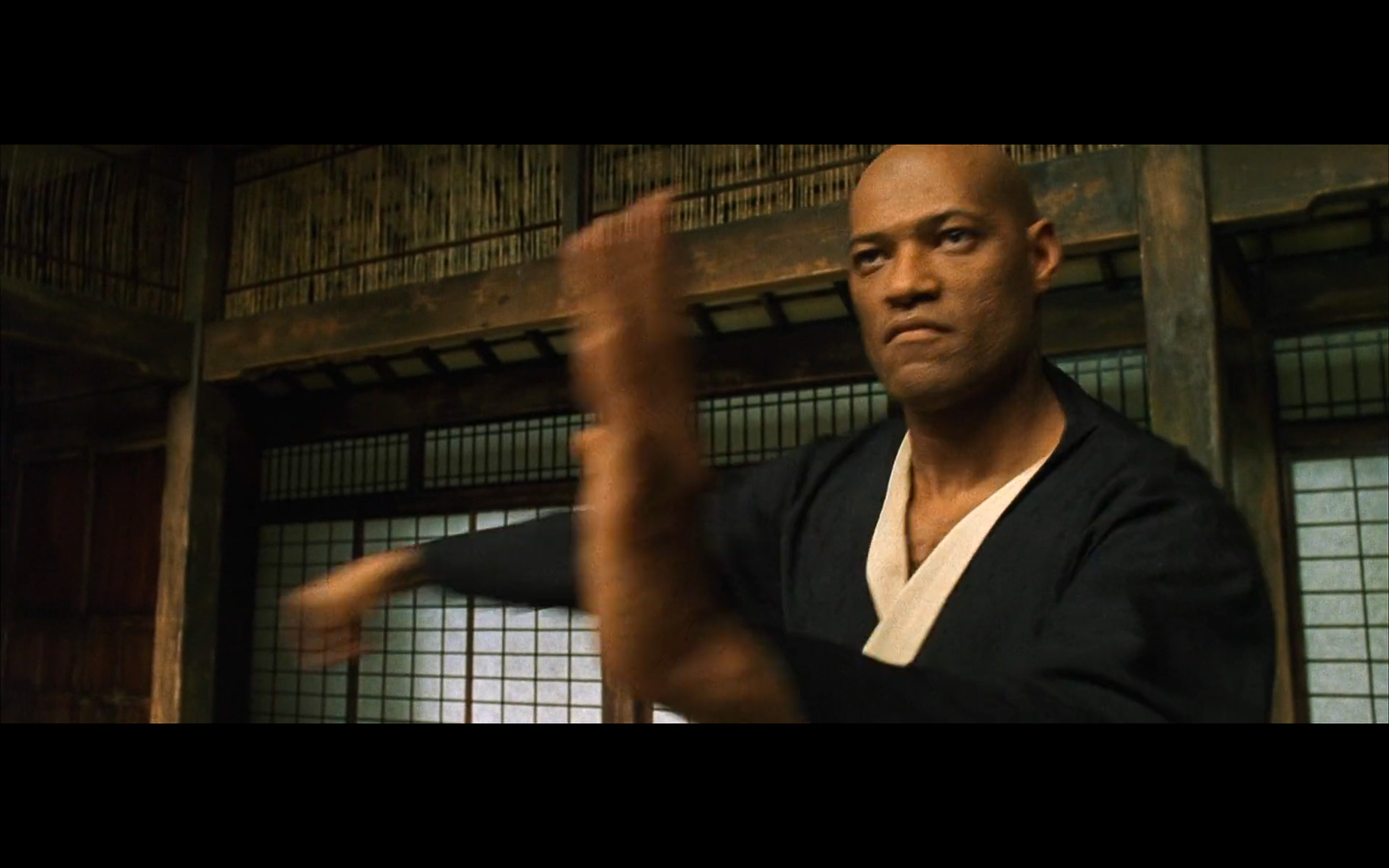




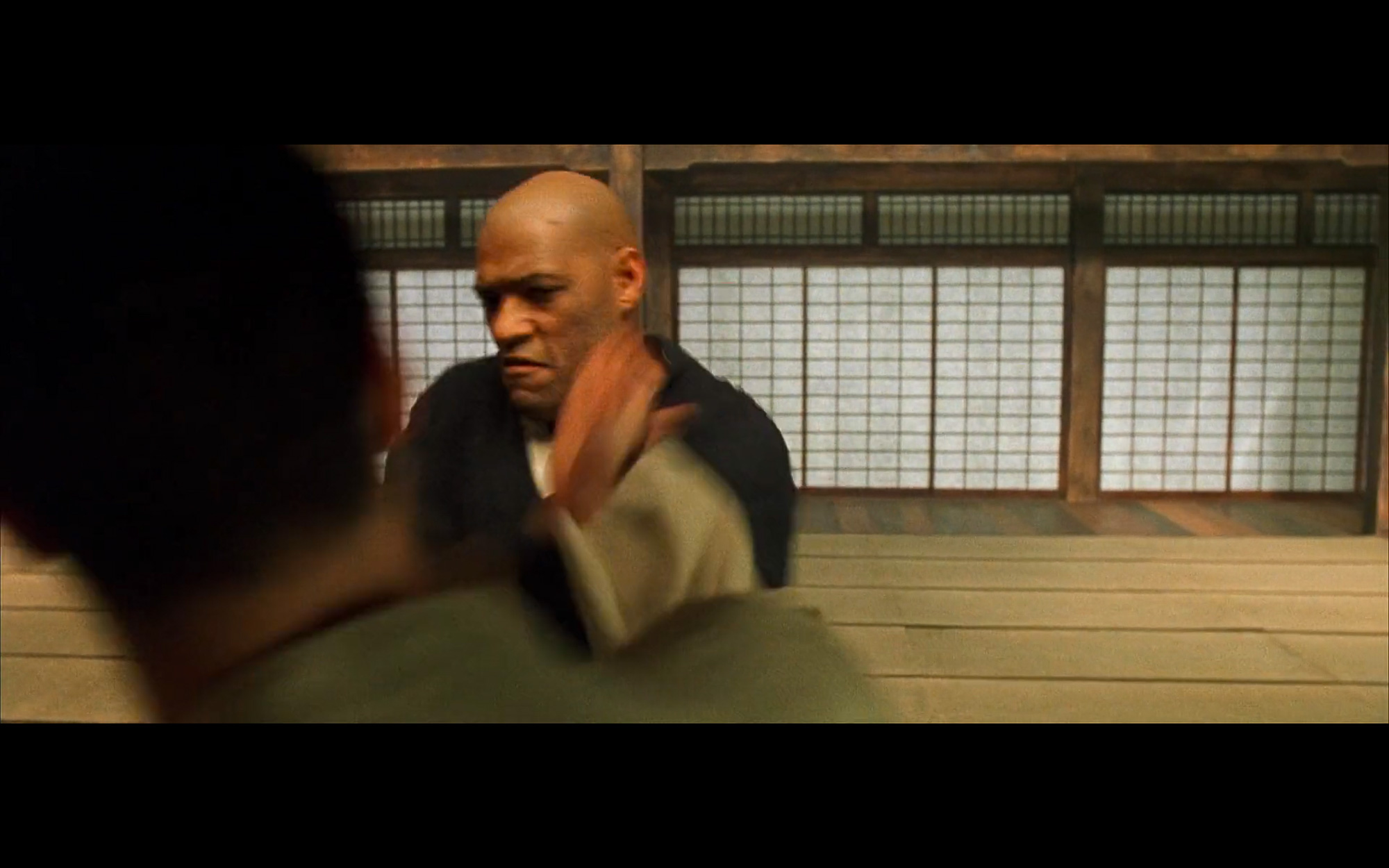
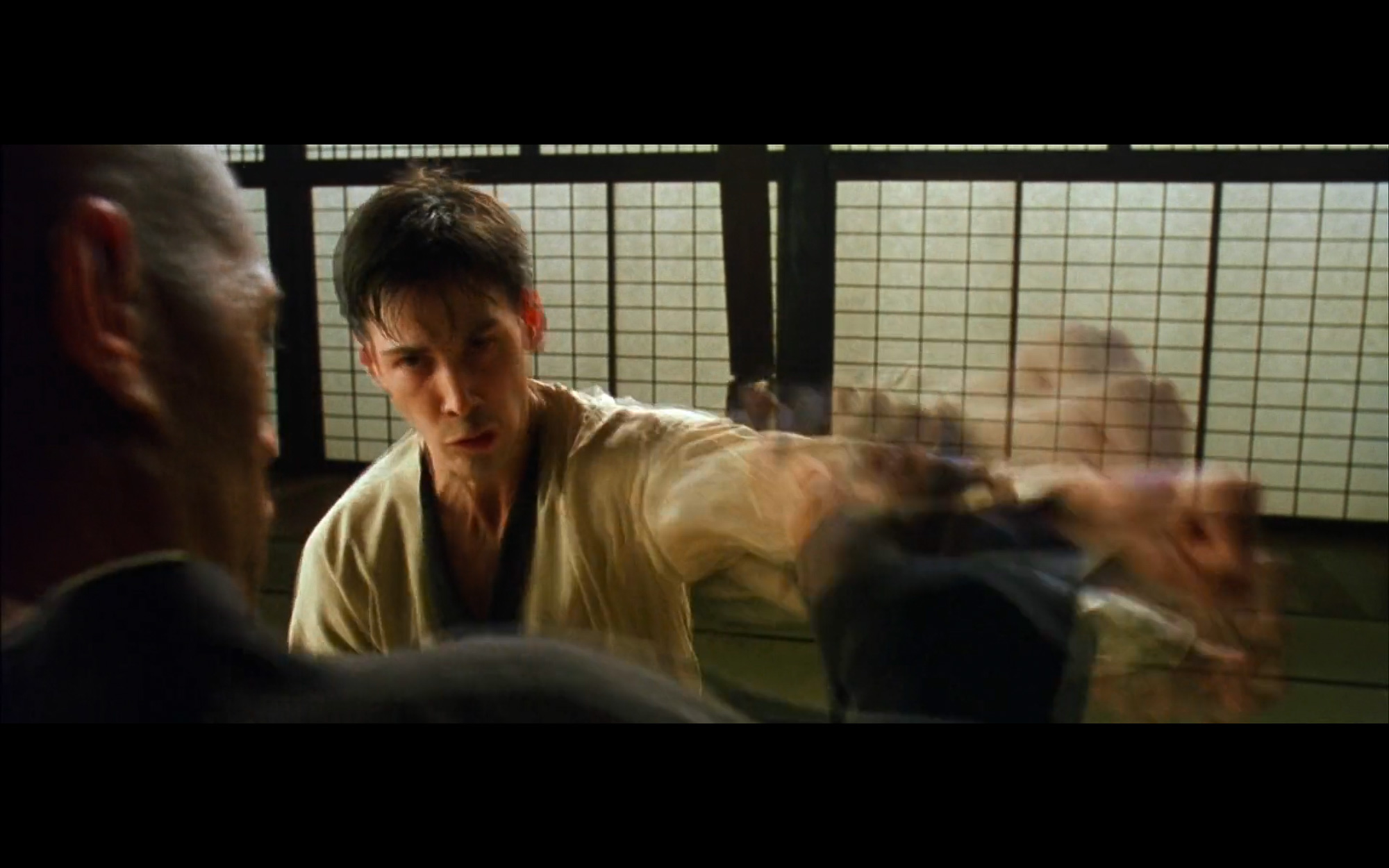

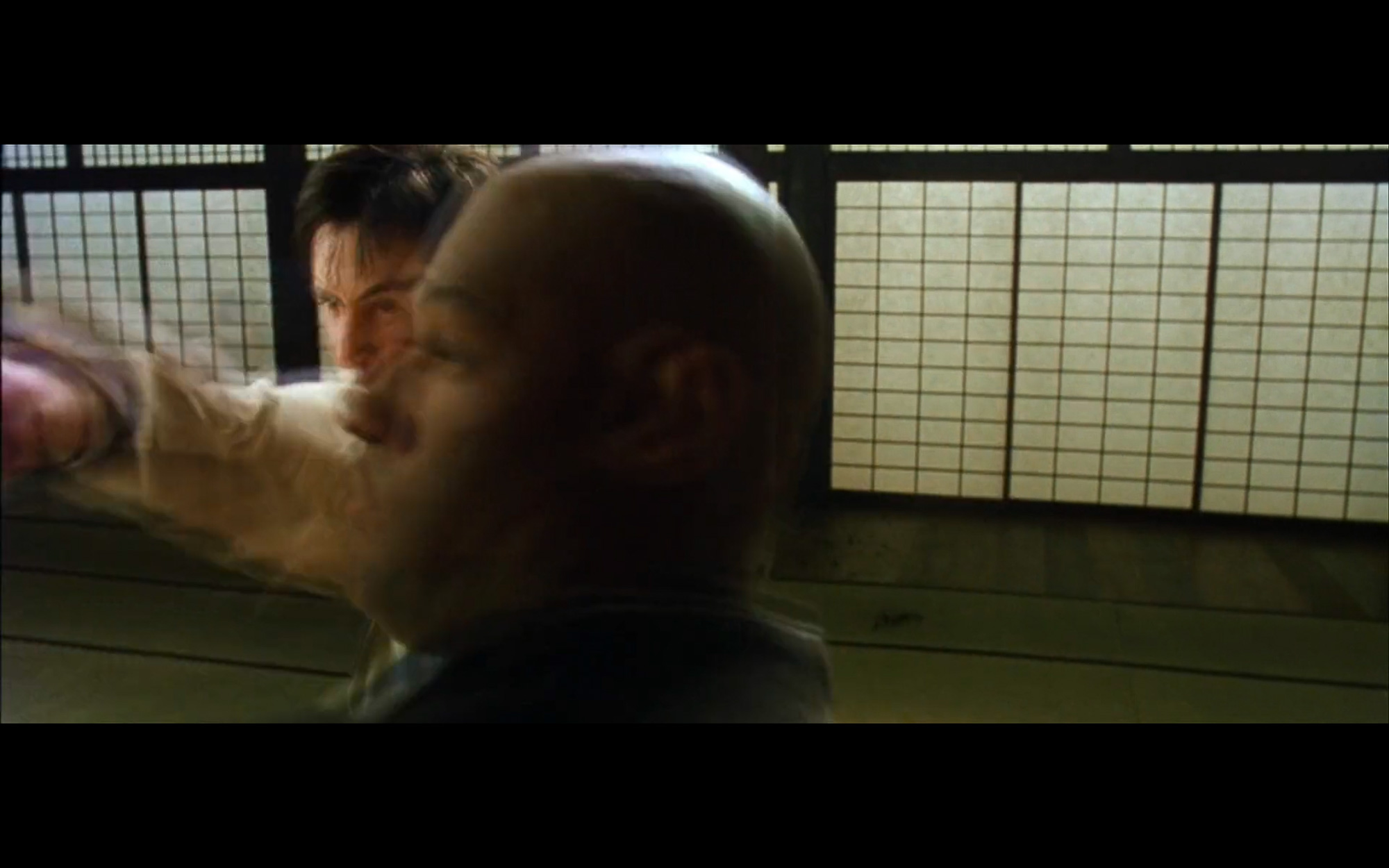








Morpheus also tells Neo: You must free your mind. And Morpheus also tells Neo:
“I can only show you the door. You’re the one who has to walk through it.”
I love this– because it tells us that in life, we always have the option of going through a certain door, or pursuing a certain path. Nobody can force us. We have free will!
To be continued in Part 4…
MATRIX Philosophy and Cinematography:

- Part 3: MATRIX Philosophy and Cinematography
- Part 2: MATRIX Philosophy and Cinematography
- Part 1: MATRIX Philosophy and Cinematography
- Life Lessons From the MATRIX